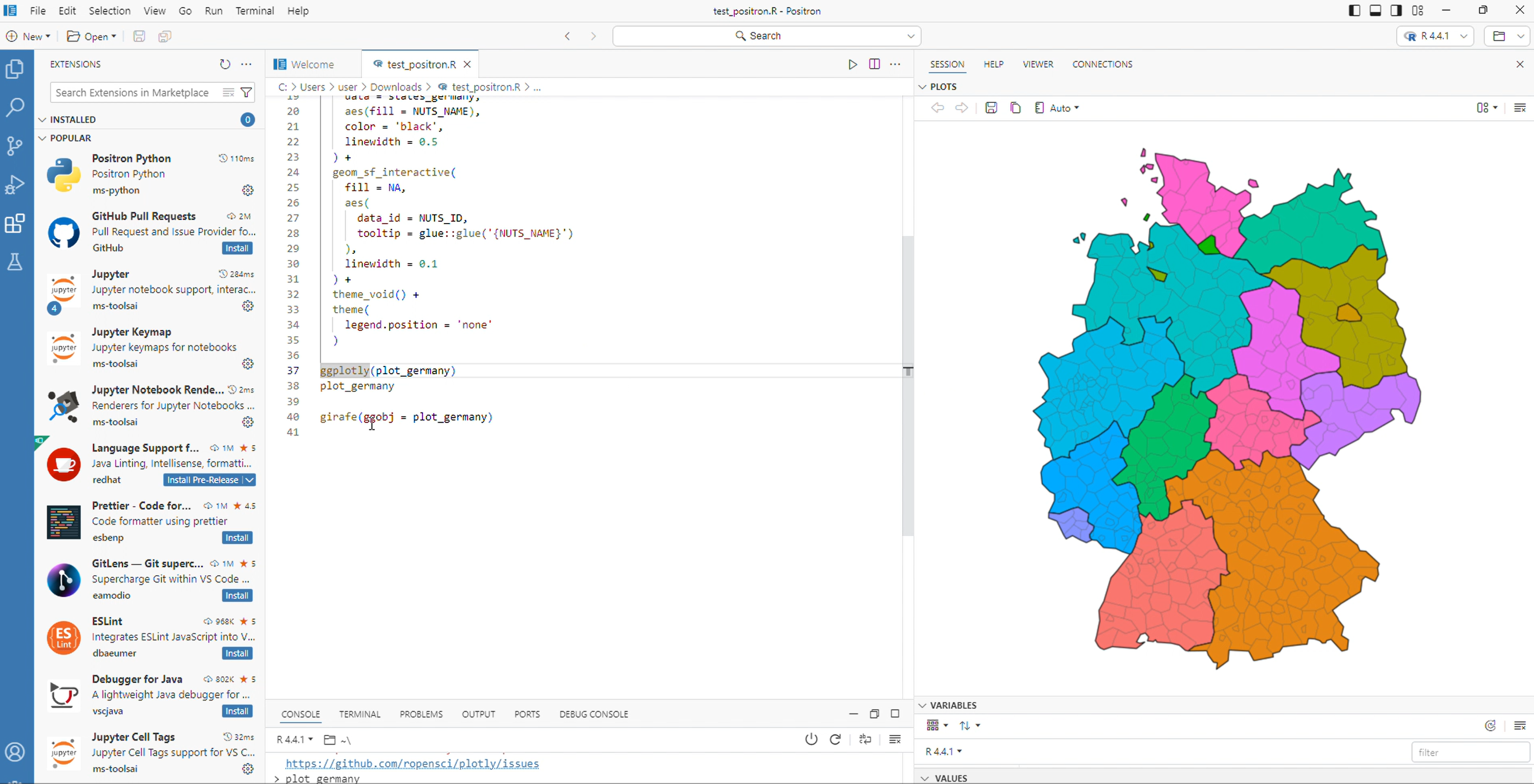I recently had the opportunity to test Positron, the innovative new Integrated Development Environment (IDE) for Data Science, crafted by Posit PBC. Positron is designed to provide a seamless and powerful experience for data scientists, leveraging the best features of existing platforms while introducing novel functionalities to enhance productivity.
A Foundation Built on VS Code
Building upon the robust foundation of VS Code, Positron brings the familiarity and extensibility of this popular code editor to the data science community. This foundation ensures that users benefit from a mature, well-supported code base with extensive plugin support, making it easy to customize the IDE to fit specific workflows.
Native Support for R and Python
One of the standout features of Positron is its native support for R and Python, two of the most pivotal languages in the data science community. This dual-language support is essential for data scientists who often need to switch between these languages depending on the task at hand. Positron simplifies this process, allowing for seamless transitions and integrated workflows.
Features and Functionality
- Integrated Jupyter Notebooks: Positron includes built-in support for Jupyter Notebooks, enabling data scientists to create, edit, and run notebooks directly within the IDE. This integration is crucial for exploratory data analysis and rapid prototyping.
- R Markdown Integration: For users who prefer R, Positron offers excellent support for R Markdown, making it easy to create dynamic reports that combine code, output, and narrative text.
- Version Control: With built-in Git integration, users can manage their code versions efficiently, collaborate with others, and track changes over time.
- Debugging Tools: Positron provides powerful debugging tools for both R and Python, helping users identify and fix issues quickly.
User Interface and Design
Although still in its beta phase, Positron has already exhibited a wealth of potential in early assessments. Its intuitive design and user-friendly interface make it accessible for both beginners and experienced data scientists. The IDE’s layout is clean and customizable, allowing users to organize their workspace according to their preferences.
Performance and Stability
Positron’s performance has been commendable even in its beta stage. The IDE is responsive and capable of handling large datasets and complex computations without significant lag. As it continues to develop, we can expect further enhancements in stability and performance.
Community and Support
Posit PBC has been actively engaging with the community to gather feedback and make improvements. The open-source nature of Positron means that users can contribute to its development, ensuring that the IDE evolves to meet the needs of its users.
Looking Ahead
I am eagerly anticipating Positron’s evolution as it matures. The current beta version already shows immense promise, and the planned features and improvements are exciting. Positron has the potential to become a go-to tool for data scientists, combining the best aspects of existing IDEs with innovative new features tailored to the needs of the data science community.
For those interested in exploring Positron further, additional information and updates can be found on their official GitHub repository.
Positron represents a significant step forward in the development of tools for data science. By combining the strengths of VS Code with specialized support for R and Python, Posit PBC has created an IDE that is both powerful and user-friendly. As Positron continues to develop, it will undoubtedly become an invaluable resource for data scientists around the world.

